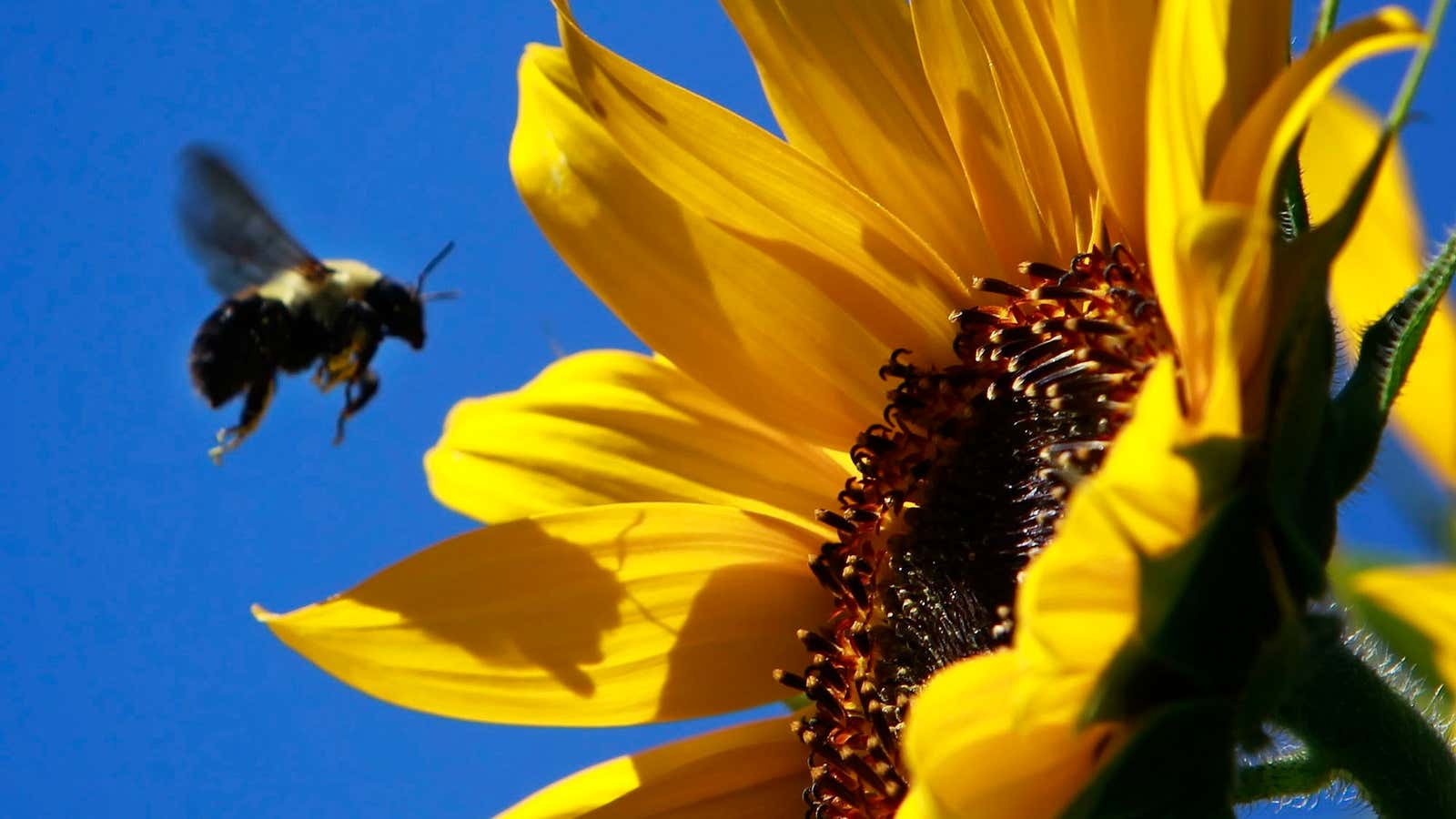As bee populations plummet in the US and Europe, people have been urged to plant bee-friendly gardens to create safe havens for the endangered little pollinators. But a first-of-its-kind study released today found that flowers and vegetables bought from American nurseries are contaminated with the same agricultural pesticides linked to the mass die-off of honey bees that pollinate a third of the food on your dinner plate.
An analysis of supposedly bee-safe backyard plants like daisies, tomatoes and salvia purchased from Home Depot, Lowe’s and other big-box US retailers discovered they were contaminated with neonicotinoids. That class of pesticide has been implicated in Colony Collapse Disorder, an affliction that has wiped out 10 million beehives over the past six years in the US. In April, European regulators banned the pesticide manufactured by Bayer CropScience and Syngenta for two years in response to crashing bee populations in France and elsewhere.
“Gardeners may be unwittingly purchasing toxic seedlings and plants attractive to pollinators for bee-friendly gardens, only to poison them in the process,” states the report from the Pesticide Research Institute and the environmental group Friends of the Earth. “Unfortunately, pollinator friendly nursery plants sold to unsuspecting consumers carry neither a list of pesticides used, nor do they carry a warning that these pesticides could harm pollinators.”
And while most apian visitors to your garden are likely to be bumblebees, they are not the only ones in danger. “Neonicotinoid-treated garden plants could also be a source of exposure for domesticated honey bees, solitary ground bees, and other vital pollinators,” Timothy Brown, an associate scientist at the Pesticide Research Institute and an author of the report, told Quartz in an email.
Researchers bought plants at nurseries in the San Francisco Bay Area, Washington, DC and in Minneapolis and St. Paul, Minnesota. An analysis of the stems, leaves and flowers conducted by scientists at the Pesticide Research Institute determined that 54% of the plants contained neonicotinoids at concentrations as much as 220 times higher than those found in agricultural crops.
Some nursery plants become contaminated with neonicotinoids either because their seeds were pre-treated with pesticide or the potting soil they were planted in contained it.
Dennis vanEngelsdorp, a research scientist at the University of Maryland and lead author of a groundbreaking study on bees and pesticides, said the new report raises important issues. “If insects on a plants pose no food or health risk why should we control them?” he wrote in an email. “Ensuring pollinators have access to at least some toxin-free food is almost certainly part of the solution.”
The study comes with some caveats, however. Scientists tested only 26 plants and did not analyze pollen, so it’s unknown just how much of the neonicotinoids bees might ingest. It’s also not known to what extent the pesticides would persist as plants grow.
“We treated the scope of this pilot study as a starting point since no similar studies were available for comparison,” Brown says. “A key point in our conclusions is that further studies with larger sample sizes are needed to fully evaluate the extent of contamination in common nursery plants.”
Brown also says it’s unclear whether pesticide-contaminated nursery plants are a widespread phenomenon or limited to mass retailers like Home Depot.
So what’s a bee-loving gardener to do? The best bet is to buy only organic, bee-friendly flowers and vegetables from nurseries that sell pesticide-free plants, the report advises.
